|

On eBay Now...
"Espionage Act of 1917" John Lord O'Brian Signed 5.5X3 Card For Sale

When you click on links to various merchants on this site and make a purchase, this can result in this site earning a commission. Affiliate programs and affiliations include, but are not limited to, the eBay Partner Network.

"Espionage Act of 1917" John Lord O'Brian Signed 5.5X3 Card:
$349.99
Up for sale a RARE! "Espionage Act of 1917" John Lord O'Brian Signed 5.5X3 Card.
ES-7281E John Lord O'Brian (October 14, 1874 – April 11, 1973) was an American lawyer who held public offices in the administrations of five U.S. presidents between 1909 and 1945. O'Brian has been recognized by scholars for his commitment to civil liberties. At the time of O'Brian's death at the age of 98, Chief Justice Warren Burger described him as the "dean" of the bar of the Supreme Court of the United States. John Lord O'Brian was born in Buffalo, New York. He attended public schools there before matriculating to Harvard College. After receiving a bachelor of arts (A.B.) degree from Harvard in 1896, O'Brian returned to his hometown and received a bachelor of laws (L.L.B.) degree from the University of Buffalo Law School in 1898. O'Brian's career in public office began at the age of 32, when he was elected as a Republican candidate to represent Buffalo in the New York State Assembly in the election of November 1906. While in the State Assembly, O'Brian was considered a consistent supporter of Governor Charles Evan Hughes Sr. Hughes recommended O'Brian to President Theodore Roosevelt for the position of United States Attorney for the Western District of New York; O'Brian left the State Assembly to take that position in 1909. O'Brian served as the U.S. Attorney throughout the subsequent administration of President William Howard Taft. O'Brian also continued in that office into the administration of Democratic President Woodrow Wilson, thus beginning a bipartisan path of serving as an appointed office holder under both Republican and Democratic administrations. In his role as the federal government's principal attorney in western New York, O'Brian in 1913 filed an antitrust lawsuit alleging that the Eastman Kodak Company was maintaining an unlawful monopoly on photographic films and equipment. In 1915, O'Brian was a delegate to the New York Constitutional Convention. In 1917, O'Brian went to Washington, D.C. to serve as a special assistant attorney general to Thomas Watt Gregory, the U.S. Attorney General under President Wilson. Gregory placed O'Brian in charge of the Department of Justice's newly-formed War Emergency Division, which was responsible for enforcing the Espionage Act of 1917 and later its amendments known as the Sedition Act of 1918. Although responsible for enforcing these congressional acts, O'Brian considered some of their provisions to be unconstitutional and declined to defend those provisions in court. To control unfettered and inconsistent enforcement of the statutes, O'Brian forbade local federal prosecutors from filing charges of espionage, sedition, or treason without approval from his Division in Washington.[12] Working with fellow Justice Department attorney Alfred Bettman, O'Brian shaped the Department's interpretation of the wartime statutes and the prosecution strategy for enforcing them. In the words of historian Theodore Kornweibel, O'Brian and Bettman "attempted to curb the most egregious violations of civil liberties." To the extent that O'Brian considered the statutes' provisions to be consistent with the U.S. Constitution, however, he played an active role in their enforcement. For example, O'Brian personally argued on behalf of the United States before the U.S. Supreme Court in the appeals brought by Charles Schenck (Schenck v. United States) and Eugene Debs (Debs v. United States) from their convictions for violating the Espionage Act of 1917. While in charge of the War Emergency Division, O'Brian hired J. Edgar Hoover, who had just finished his legal education in Washington. Impressed with Hoover's diligence, O'Brian promoted him to Special Agent in charge of the Division's Alien Enemy Bureau. O'Brian later said of hiring Hoover, "It is one of the sins for which I have to atone." O'Brian left the Justice Department in 1919 and returned to the practice of law in Buffalo. Before the end of that year, he was mentioned as a potential Republican Party candidate for Governor of New York. A faction of Progressive Republicans in New York also tried to enlist O'Brian to run in 1920 as challenger for the party's U.S. Senate nomination against incumbent Republican Senator James Wadsworth Jr. Those Progressives cited O'Brian's support for women's suffrage as one of the reasons to prefer him to Wadsworth.[9] O'Brian, however, declined to seek that nomination. With the election of President Herbert Hoover in 1928, O'Brian was considered for the position of U.S. Solicitor General, but was passed over in favor of Charles Evans Hughes Jr. Instead, O'Brian served in the Hoover administration from 1929 to 1933 as the Assistant Attorney General in charge of the Antitrust Division of the Justice Department. In this role, O'Brian argued on behalf of the federal government (including the Federal Trade Commission) in more than 20 cases before the U.S. Supreme Court. Upon leaving the Justice Department in 1933, O'Brian returned to private practice in Buffalo. There his clients included Pierce-Arrow Motor Car Company, which he counseled as the luxury car maker struggled to remain in business during the Great Depression. In the later 1930s, the Tennessee Valley Authority hired O'Brian as counsel to defend legal challenges to the constitutionality of the federally-owned corporation. As lead counsel, O'Brian twice argued before the U.S. Supreme Court in cases that upheld the TVA's legality. of 1938, O'Brian ran unsuccessfully as a Republican against incumbent Democratic Senator Robert F. Wagner. At the 1940 Republican National Convention, O'Brian gave the nomination speech for Thomas E. Dewey, saying that Dewey could "be trusted to keep the country out of war." O'Brian likewise said that Dewey was "a life-long" Republican, that is, not like Wendell Willkie.


"Espionage Act of 1917" John Lord O'Brian Signed 5.5X3 Card $349.99
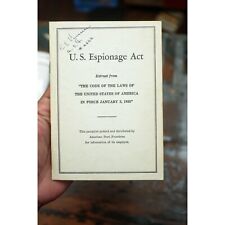
US Espionage Act 1940 WW2 Wartime Spies Logistics American Steel Foundries $17.29

Gambit X-Men Registration Act EPIC Award (cc#133) Topps Marvel Collect Digital $39.99
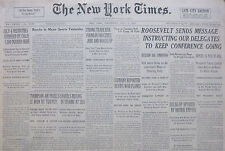
7-1933 July 5 HITLER ORDERED PETTY ESPIONAGE STOPPED ACTS TO FREE BUSINESS $34.65
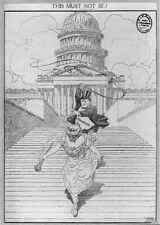
Photo:Espionage Act of 1917 $9.99
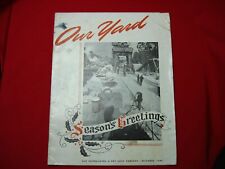
OUR YARD MAGAZINE SUN SHIPBUILDING DEC. 1946 & ESPIONAGE ACT DOCUMENT 1942 *WOW* $19.95
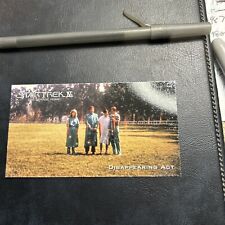
Star Trek Wide Vision The Voyage Home 1994 Skybox #49 Disappearing Act $1.99
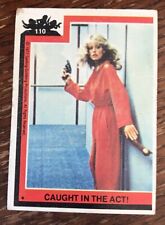
Farrah Fawcett 1977 Topps Charlie's Angels Trading Card # 110 CAUGHT IN THE ACT $2.99
|